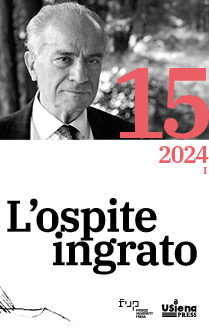“Finding oneself” in another language: understanding translingualism and building tools for dealing with trauma in educational contexts
Published 2024-07-18
Keywords
- translingualism,
- trauma,
- new applications in educational settings
How to Cite
Copyright (c) 2024 Andreina Sgaglione

This work is licensed under a Creative Commons Attribution 4.0 International License.
Abstract
In the disjointed context of our multicultural globalization, marked by large-scale mass migrations and a rapidly changing anthropological and cultural landscape, educational settings should provide, in learning/teaching pathways, suitable tools to foster a necessary capacity for multicultural rootedness and recognition. The complexity of the present and the conflicts that characterize it confront us with the urgency of carefully observing the diverse plural histories that identify our societies and of welcoming and valuing the wealth of voices and languages that inhabit the world. Often the situation of disorientation in which immigrant learners, both newcomers and second-generation, find themselves, is not perceived as an integral part of a larger dimension that is that of translingualism, a condition of crossing languages, a significant form of multicultural multilingualism. Translingualism through its articulations, namely translanguaging, translingual writings and translingual imaginary, represents a lens through which to better understand the condition of translingual learners and the possible traumatic component intertwined with the migration experience. This paper will examine translingualism in its fundamental aspects with a focus on those traits that have potential for application in multilingual educational settings. The issue of migratory trauma will be addressed by proposing teaching strategies that help develop some fundamental tools for success in learning, such as resilience and hope, as outlined in some recent internationally tested protocols.

